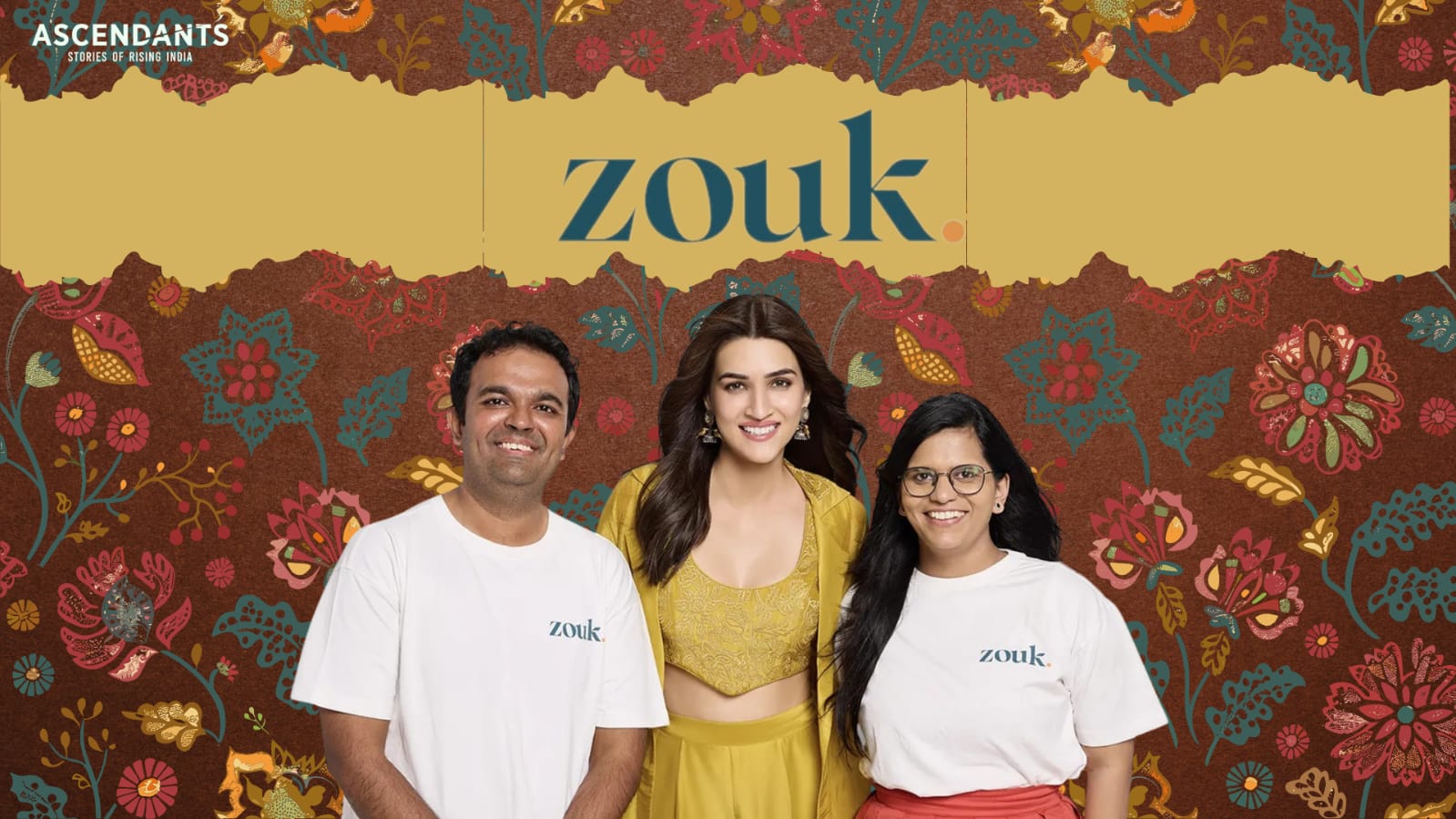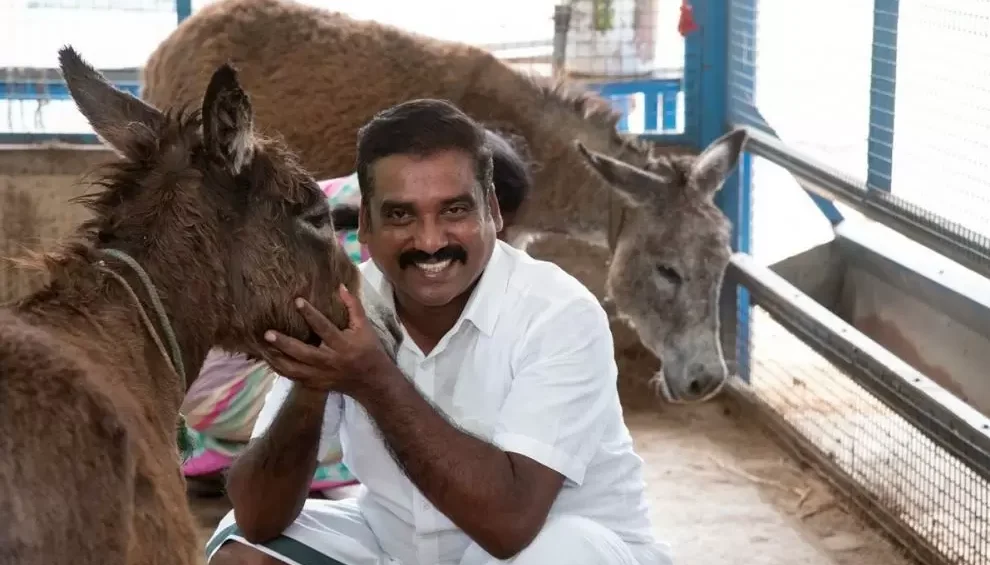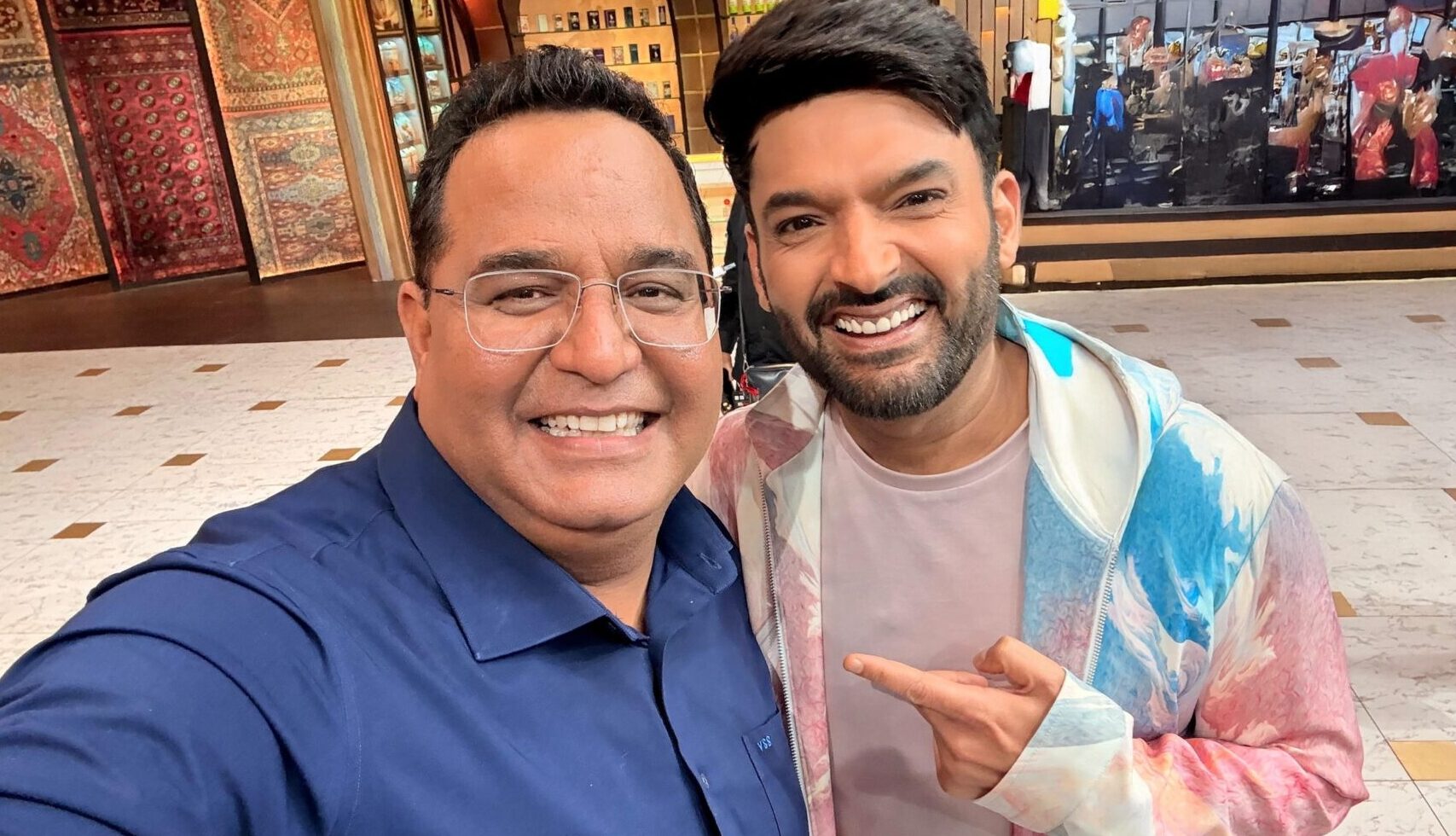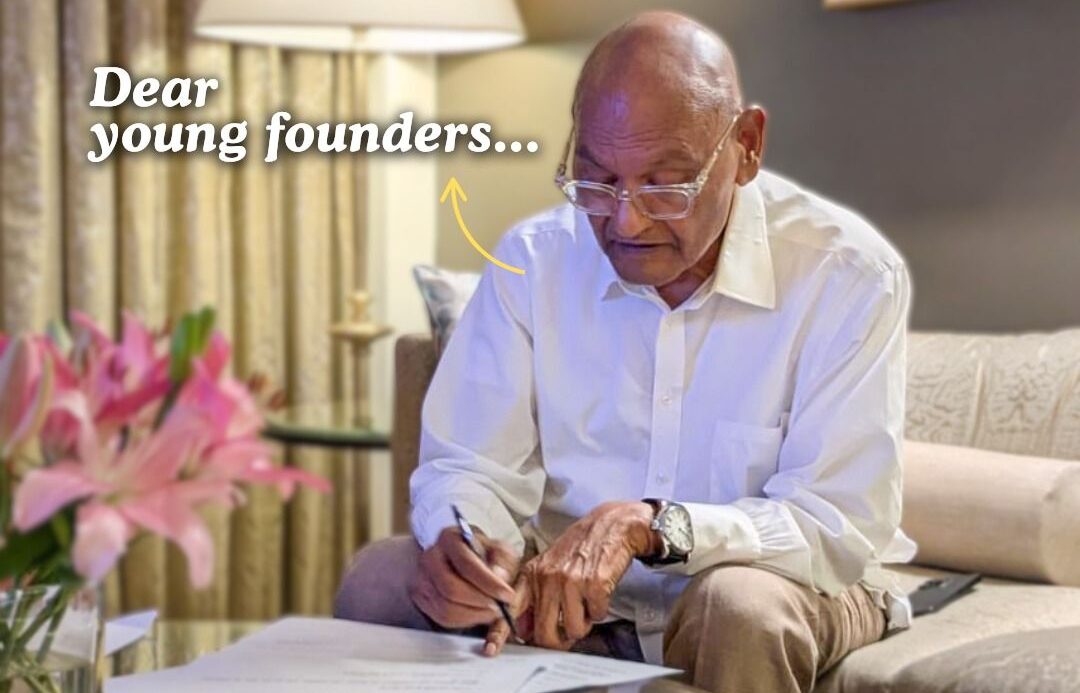When Zouk opened its new store in Indore on Independence Day 2025, co-founder Disha Singh called it “a homecoming.” For her, a native of Madhya Pradesh, it was personal. But behind the scenes, the brand’s steady journey from an IIM classroom idea to a nationwide bag label has always been driven by two voices: Singh’s instinct for design and storytelling, and her co-founder Pradeep Krishnakumar’s discipline in building systems, scaling operations, and staying close to the customer. Together, they’ve stitched Zouk into one of India’s most recognizable Proudly Indian, 100% vegan lifestyle brands.

The spark: a desert, a gap, a decision
The company’s origin has the clarity of a field note. On a trip to the white desert of Kutch, Singh watched friends admire local handicrafts, snap pictures, then walk away without buying. Beautiful, yes. Useful for their daily lives? Not quite.
The disconnect stayed with her. It suggested a simple opportunity: make products that carry the look and spirit of Indian craft, but function seamlessly for a modern routine. Zouk, founded by Singh with co-founder Pradeep Krishnakumar, grew out of that observation.
The idea: stylish, functional goods that keep the essence of India intact and go where people actually go: offices, colleges, weddings, weekend trips.
From day one, the brand tried to steer clear of tokenism. Its language is consistent, handcrafted, cruelty-free, proudly Indian and the products aim to feel contemporary without sanding off cultural texture.
What Zouk makes and why it resonates
Zouk calls itself a Modern Indian lifestyle brand and focuses its range on bags, wallets, and luggage. The prints nod to Indian motifs; the silhouettes and compartments speak to commutes, campus life, short-haul travel, and the reality that a bag has to earn its keep, not just look good in photos.
The brand pairs its aesthetic stance with an ethical one PETA-approved, 100% vegan materials, then meets shoppers where they are: online and through a growing set of flagship stores. For corporate and bulk buyers, there’s a dedicated program, a practical channel that doubles as awareness for first-time users who receive Zouk as a gift.
Listening before building: the “Gifting Combos” pivot
One of the better tells of Zouk’s operating style is how it handled an unexpected pattern in carts: customers were often buying two or three slings together, or an office bag plus a couple of wallets, not for themselves, but as gifts.
Instead of forcing the old self-use lens, the team leaned into reality and created Zouk Gifting Combos, curated assortments, tidier packaging, and small merch add-ons (a diary, a bookmark) that make the gesture feel complete. The line wasn’t dreamed up in a brainstorm; it was lifted straight from behavior. As one shopper put it, “There’s no such thing as too many bags.”
It’s a small case study in product thinking: notice, formalize, then remove friction. The result turned a scattered insight into a repeatable proposition across anniversaries, festivals, promotions, Secret Santa, and Valentine’s Day.
A brand that puts customers in the frame
Every Women’s Day, Zouk turns the camera on its own users, literally featuring customers as the faces of the brand. The exercise is more than a feel-good montage.
Co-founder Krishnakumar has been blunt that this annual ritual doubles as a feedback loop: people tell the company what works, what doesn’t, and what should change in the product or service experience.
That posture, treating customers as primary stakeholders, has helped the team iterate while building credibility in a crowded segment. The company counts over 10,00,000 happy customers; the humility is in asking them, year after year, what to fix next.
From D2C to doorways: the offline push
What began as a digital-first brand is now comfortable hanging a shingle in malls. Zouk’s 10th store opened at Nexus Vega City Mall, Bengaluru, a milestone that quietly says the unit economics are holding and there’s appetite for the look-touch-feel of the brand.
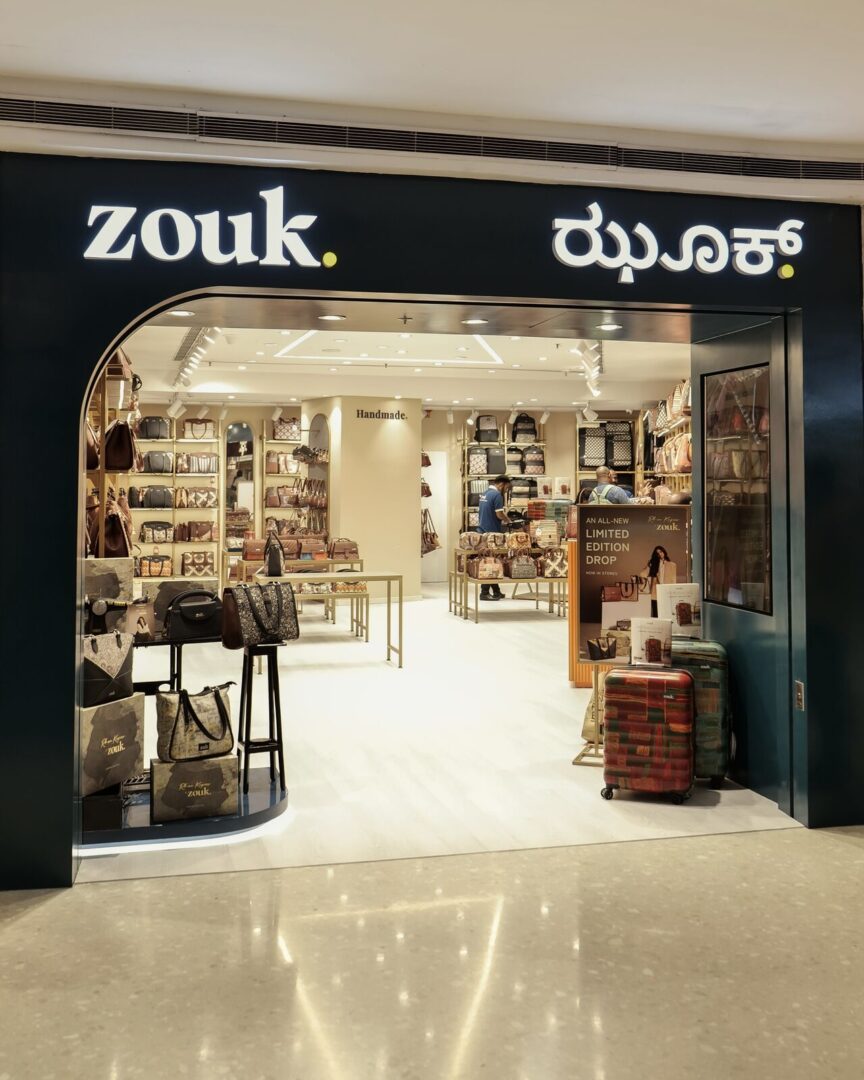
The Indore opening on August 15th doubled as a cultural statement, launching a “proudly Indian” label on Independence Day, while underscoring a bet many founders now share: India’s consumption story travels well beyond Tier-1 ZIP codes.
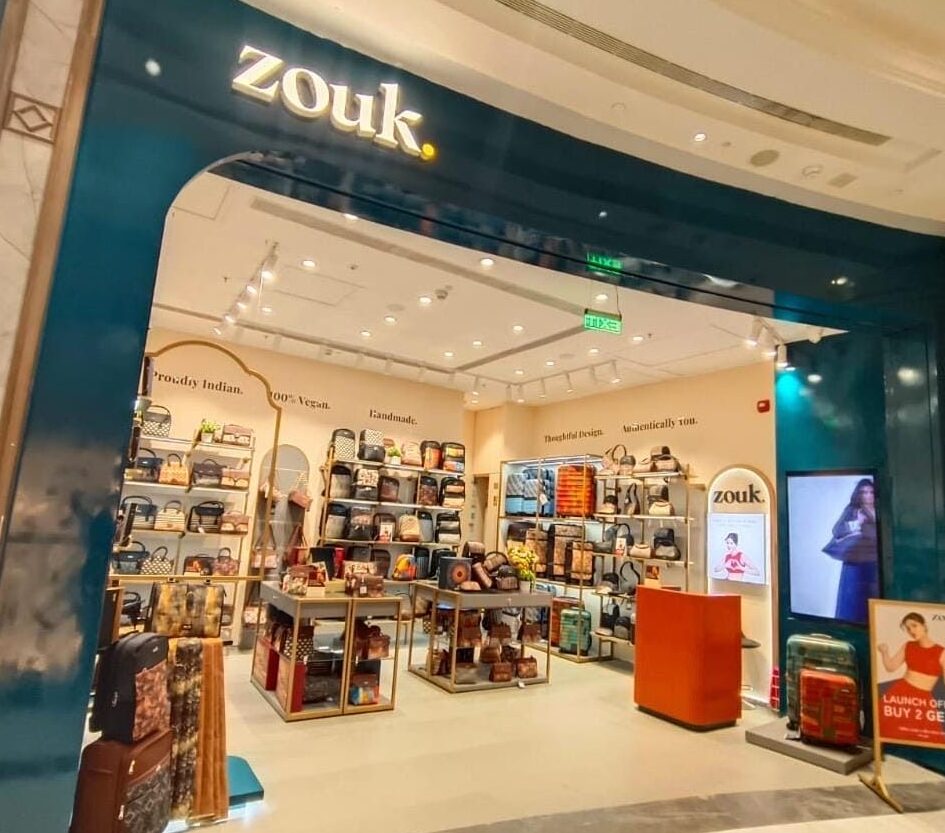
The approach feels methodical rather than land-grabby: show up where the brand story clicks locally, then let word-of-mouth and repeat gifting do their compounding.
The face of the brand and what that signals
Zouk’s decision to bring Kriti Sanon on as brand ambassador aligns with the positioning it’s nurtured so far. Sanon’s image, approachable, fashion-forward, vocal about Indian craft and design, mirrors how Zouk wants to be perceived: relatable elegance without the fuss.
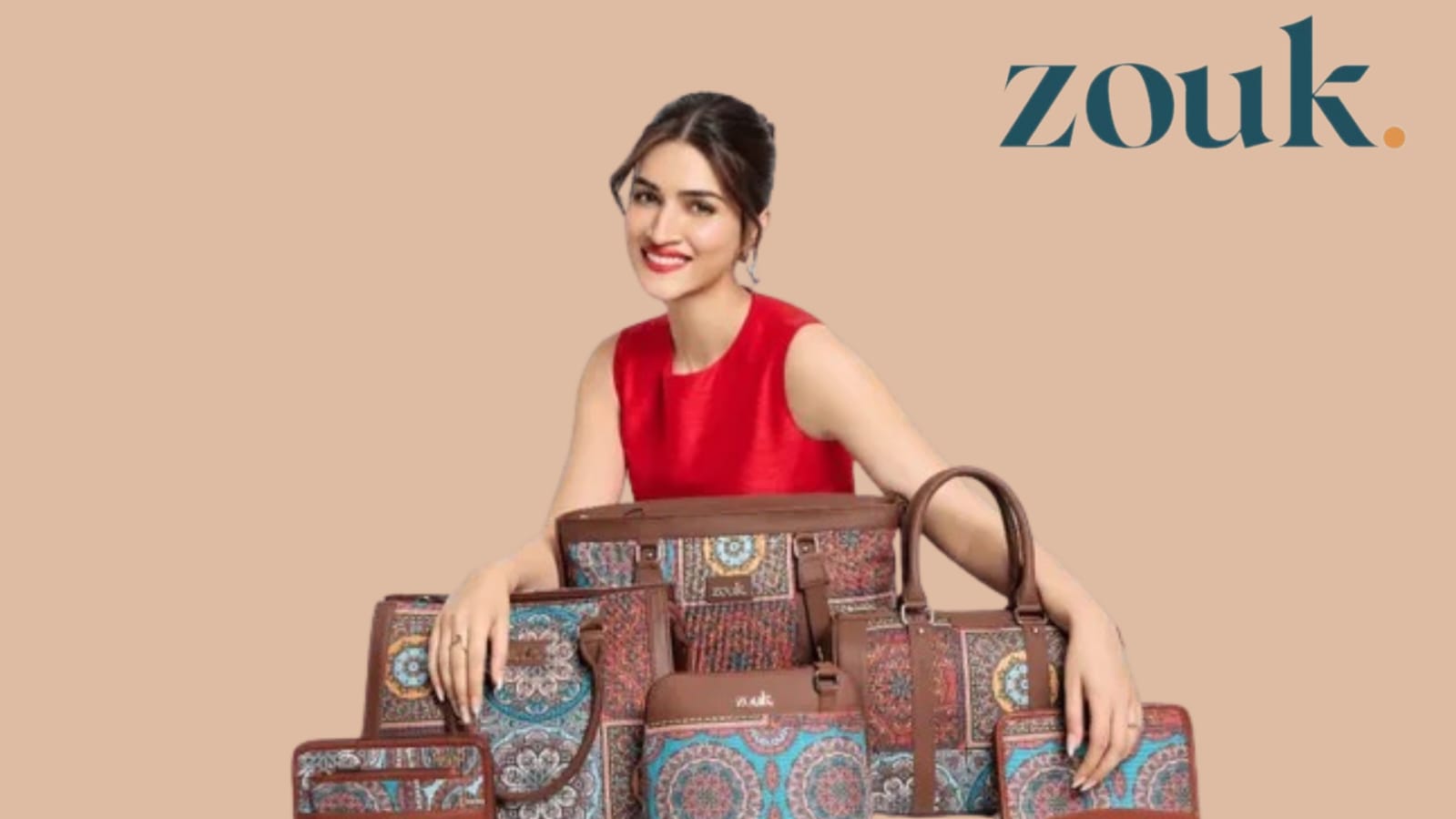
Singh’s read on her new ambassador captures that bridge: the modern Indian consumer who respects heritage but doesn’t treat it like a museum. The expectation is straightforward: reach new audiences without diluting the core.
What the founders keep repeating
Zouk’s internal philosophy is written in uncomplicated terms: “Proud but humble.” “Unapologetically Indian.” It’s branding, yes, but also a filter. The first phrase is about materials, quality, and the insistence that “only the good goes in.” The second is about being vocal and specific, about the vibes of a vibrant India, not a generic “ethnic” pastiche. In practice, it pushes the team to design with intent rather than lean on motifs as a crutch.

You can see those choices in the details: the way prints are adapted for work totes and laptop sleeves; the emphasis on usefulness alongside heritage; the decision to stay in the lane of bags and travel gear rather than chase every accessory trend. The brand’s “about” copy even frames a bag as something that “carries little pieces of you,” a tidy way to say form should serve life, not the other way around.
Company, structure, and scope
Zouk operates under Sea Turtle Private Limited, a detail that matters mostly for understanding how the label has been built, deliberately, with a narrow category focus and a recognizable identity. The range today spans handbags, slings, totes, wallets, backpacks, and luggage and it’s available online as well as at flagships in select cities.
The neutral read promise and pressure
Zouk competes in a noisy market where designs are easy to copy and attention is expensive. Its edge, India-forward design with vegan, cruelty-free materials, must be renewed each season with fresh patterns and consistent quality control. Offline stores introduce fixed costs that only disciplined merchandising can cover. And celebrity associations are useful megaphones but still need to show up in repeat purchase and category leadership, not just follower counts.
On the other hand, Zouk’s fundamentals are clear and defensible: origin anchored in a real user gap; products that can move across occasions without needing a pitch; a community strategy that treats customers as co-authors; and an omnichannel footprint that follows demand, not fashion. If the team holds that line, heritage rendered useful, the brand has room to keep compounding in metros and the Tier-2/3 cities it’s betting on.
Also Read: WiseLife: Yoga Startup Turning Mats into a Movement









